The Minnesota fire service community recently gathered at Grand Casino Mille Lacs in Onamia for a full day of inspiring and hands-on health and wellness training at our 2025 Firefighter Health Forum.

The goal of the event was to share expertise, informative tips and resources to help protect and empower firefighters – and their families – in their professional and personal lives. Firefighters, their partners and spouses, and MnFIRE peer supporters were all immersed in the forum sessions together.
The year’s keynote speaker Ali Rothrock, a first responder mental health advocate, crisis counselor and author, helped set the tone for the day by talking about fostering resilience on and off the job. She reflected on some traumatic experiences early in her career and how they’ve impacted where she is today.
In a post-event survey, one attendee shared, “I found Ali incredibly helpful, insightful and relatable. The way she was able to talk about trauma in a way that everyone could understand was fantastic.”
In other breakout sessions, attendees learned about fitness and nutrition, first responder safety and self-defense, cardiovascular health, optimizing sleep habits, and suicide prevention – all based on the demands of the fire service, and the occupational health risks facing firefighters every day.
The movement sessions were a hit, particularly an interactive mobility session led by Blake Christenson of Iron Maltese Athletics with him modeling proper hip and shoulder movements to help firefighters reduce their risk of injury on the job. A few attendees walked away excited to bring this simple warm-up routine back to their departments.

At lunch during the forum, Monte Fronk, Head of Tribal Emergency Management for the Mille Lacs Band of Ojibwe, presented Garrison Fire and Rescue Captain and MnFIRE peer supporter Jen Elleraas with a special gift. Garrison Fire and Rescue is a volunteer fire department and the Mille Lacs Band of Ojibwe – one of 11 federally recognized tribes in Minnesota – is one of the largest communities they serve.
Under Jen’s leadership, the department has worked to improve its communications and outreach, including participating in the annual Mille Lacs Band fire prevention/safety day at the tribal schools on the reservation and assisting Monte with already established NFPA 1300 community risk reduction efforts. Jen was recently recognized as the 2024 MSFCA Fire Officer of the Year for populations under 10,000. But to personally thank Jen and show his appreciation, Monte gave her a traditional gift of a blanket that recognizes her passion and efforts to improve safety for the Mille Lacs Band.

Nearly 90% of attendees who took our post-event survey, said they’d recommend future MnFIRE Firefighter Health Forums to others.
Thank you to all the incredible presenters and attendees who made this such an impactful and memorable event! We are so grateful for our fire service community.
Interested in bringing this kind of training to your department? MnFIRE’s no-cost trainings through the state’s Hometown Heroes Assistance Program provide crucial information about health and wellness topics impacting those in the fire service, such as cardiovascular health, emotional wellness, cancer, sleep, fitness and nutrition. Learn more and register your department for a training here.

